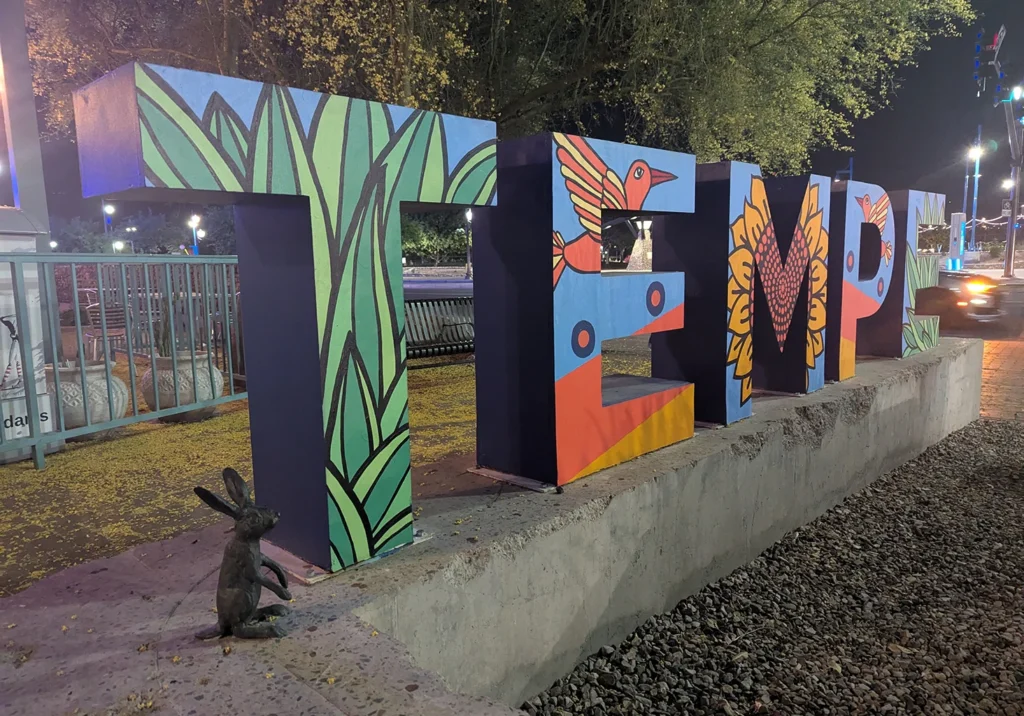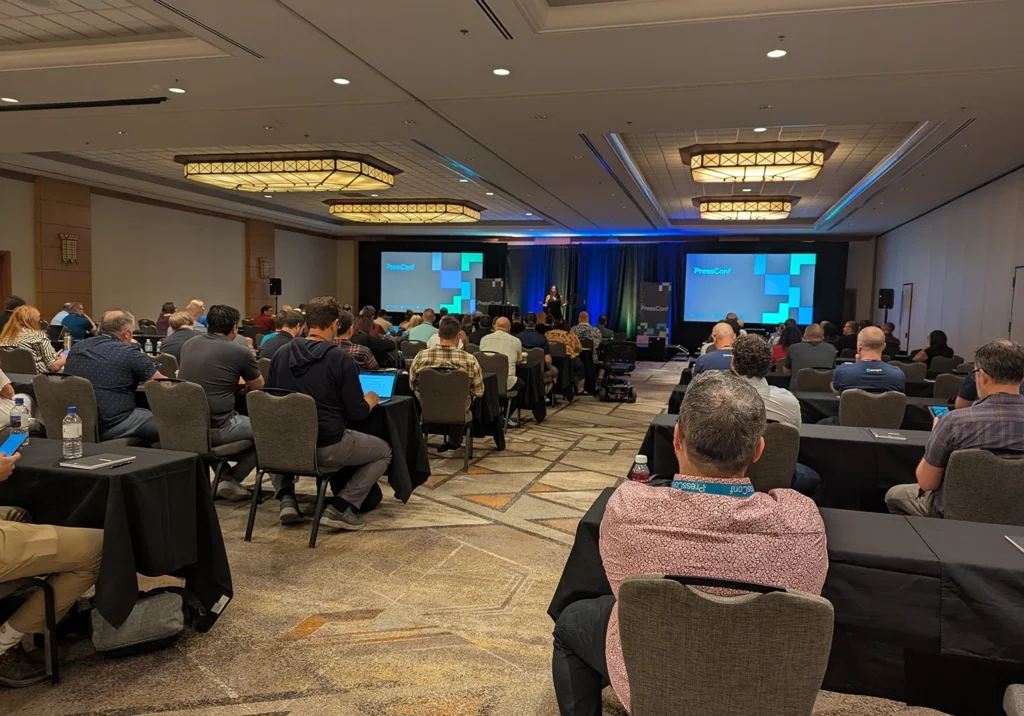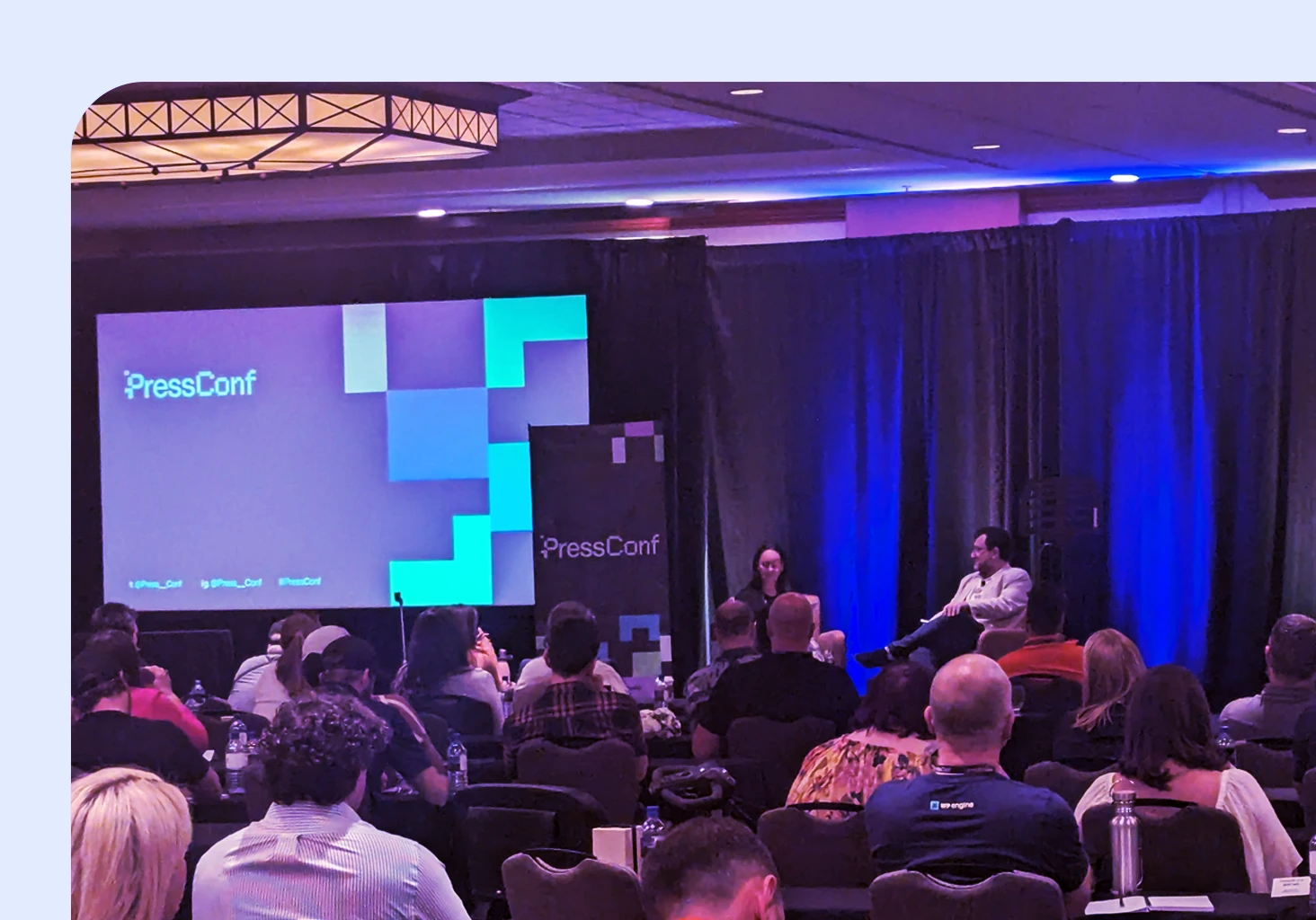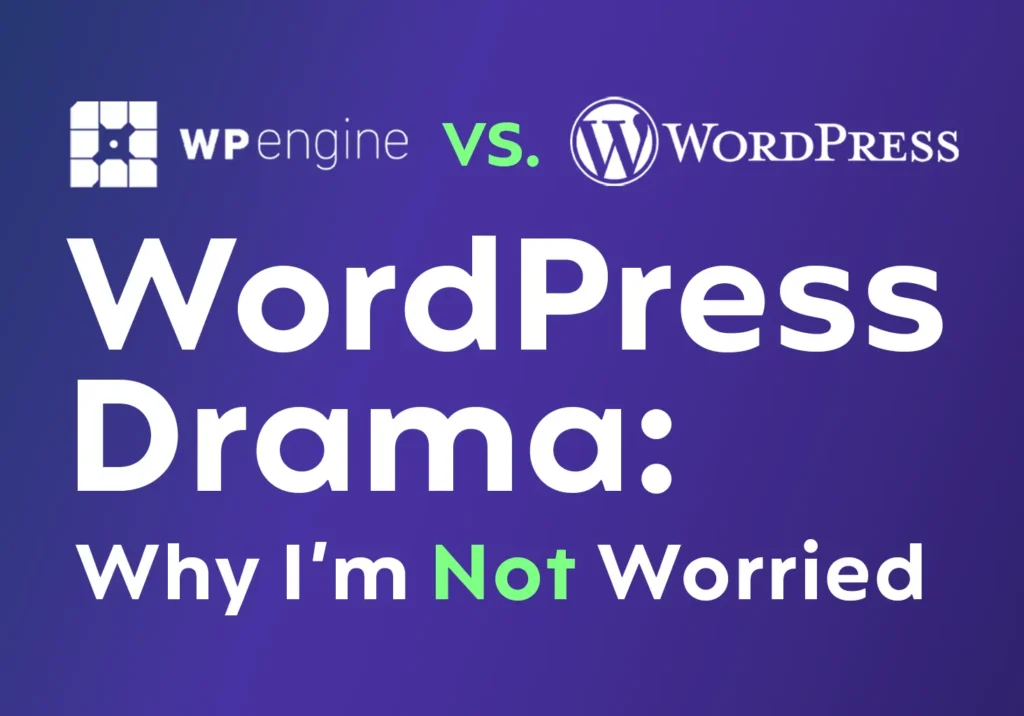Last week, I was lucky enough to attend PressConf, a collection of talks produced by Raquel Manriquez and team in Tempe, Arizona. It’s similar to a WordCamp, but not funded in any way by the WordPress.org organization itself. With what has happened in the WordPress community since “The Drama” there have been quite a few conferences popping up to fill the gap.
For those of us building on WordPress since the early days, seeing this global community take action was exciting, encouraging and surprisingly energizing.

WordCamps in a Post-Pandemic World
It was refreshing to catch up with longtime WordPress friends, all in one place, like we had done for years. Before 2024, and especially before the pandemic, there used to be WordCamps all over the world. I’ve attended them in Atlanta (obviously), Nashville, Asheville, Tampa, Jacksonville, Orlando. I’ve also attended them in Boston, The Netherlands, Athens, etc.
But since the pandemic, we haven’t had quite as many. Then, The Drama has affected attendance even more since September 2024. In fact, I have no plans to attend a WordCamp this year. There are a few reasons I could list, but it’s mostly because there aren’t any WordCamps anywhere near me. Instead, I’ve attended PressConf, DrupalCon, and I’m speaking at ColorCode (another non-WordCamp camp driven by WordPress people).

The PressConf Experience
PressConf felt different right from the start. Arriving early Wednesday gave me a chance to explore Tempe and connect with other attendees before any formal sessions started. I even had lunch with someone I’d only known through Twitter. It was one of those long overdue online-to-in-person connections. The entire opening reception that first night was low-key but effective for catching up and reconnecting.
The conference started early the next morning. One of the things I really liked about this event was that there was one room for sessions. With fewer floors to fill, the level of speakers was, overall, much better than WordCamps. PressConf had handpicked speakers, whereas with WordCamps anyone can submit a talk. I was able to catch most of them.
One of these talks, from a friend I’ve known for years, really stood out to me.
Future-Proofing WordPress
The talk I keep going back to was from Karim Marucchi, owner of Crowd Favorite. As you may have read, Karim and Joost were mentioned by Matt Mullenweg (the owner of WordPress.org, WordPress.com and Automattic) in his somewhat controversial post “Joost/Karim Fork.” Karim’s presentation did not focus on this fork, but about how we can ensure that WordPress will still be available even if WordPress.org completely blocks people out.
In the current setup, Matt can easily block any hosting company from accessing WordPress resources. This happened to WP Engine, which raised serious concerns throughout the community about preserving WordPress’s open-source foundations. The so-called “J/K Fork” isn’t what the community wants, nor was it what Karim was proposing.
What Karim suggested instead was a plugin that would let users choose their WordPress repository source. It’s similar to how Linux users can choose Red Hat, Ubuntu, or Debian distributions for their OS. This approach would maintain WordPress’s integrity while protecting users and businesses from potentially disruptive access issues. It feels like a thoughtful middle ground that preserves WordPress’s ecosystem and its open-source spirit.
Evolving With The Ecosystem
Karim’s repository choice idea makes a lot of sense to me. It’s a practical solution that keeps WordPress open while giving users more control over where they get updates. This approach would help prevent the kind of access issues we’ve seen recently without needing a full fork of the codebase.
Amidst the noisy backdrop, we’re still building big things on WordPress as we stay in tune with other platforms like Drupal. Our Georgia Department of Education project is just one example of how larger organizations are customizing WordPress to fit their enterprise-grade needs. Taking a multi-platform approach has always just made sense for solving our clients’ unique problems.
What happens next depends largely on leadership. Karim has invited Matt Mullenweg to guide WordPress (and the wider community) toward this more distributed future. The question now is whether Matt will take him up on the invitation.
These conversations are far from over, and I’m curious to see which ideas gain traction. I’ll keep sharing insights and updates as the community charts its new path forward.




